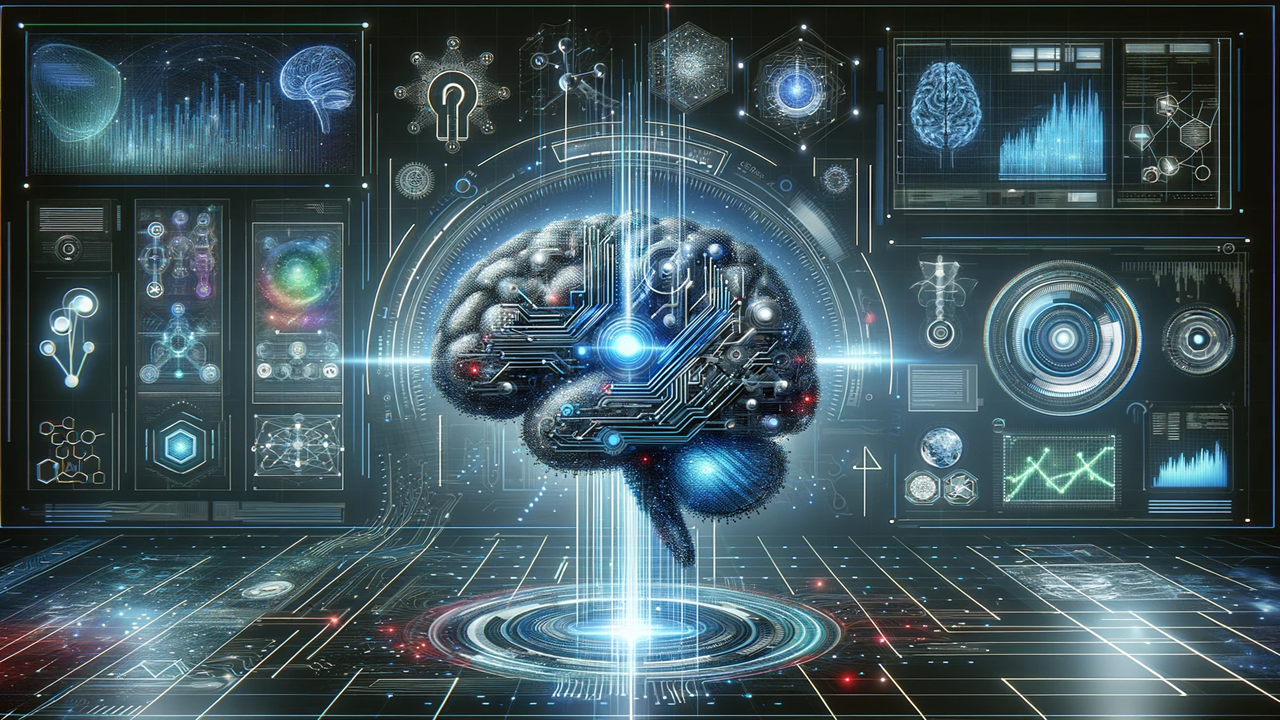Revolutionizing Innovation: How AI is Reshaping the Future of Research and Development
AI in Research and Development signifies a monumental shift, augmenting human intelligence with computational power. From accelerating data analysis to enhancing innovation, AI's multifaceted role streamlines processes unlocks new potentials, and sets a new paradigm in the journey of discovery and invention.

The infusion of Artificial Intelligence (AI) into Research and Development (R&D) has marked a revolutionary leap in how innovation unfolds. AI, a multifaceted technology, serves as a catalyst, streamlining and enhancing the processes involved in R&D. From expediting data analysis to fostering novel inventions, AI's role in R&D is pivotal, shaping a future where technology and human intellect coalesce to unlock unprecedented possibilities.
Historical Evolution of AI in R&D
AI's journey in R&D is a tapestry of continuous evolution. The initial applications were modest, focusing on simplifying computational tasks. However, as the technology matured, AI became instrumental in landmark discoveries and innovations, setting new milestones in various domains.
AI's Impact on Research Processes
In research, AI acts as a force multiplier, significantly accelerating data analysis, which is often the most time-consuming phase. By swiftly parsing through colossal datasets, AI extracts meaningful insights, enabling researchers to make informed decisions promptly. Moreover, AI's capacity to simulate and model complex scenarios enhances creative problem-solving, pushing the boundaries of innovation.
AI in Development and Prototyping
In the development phase, AI streamlines the design process, ensuring efficiency and precision. Prototyping, too, has been revolutionized by AI's ability to simulate real-world conditions, allowing for rigorous testing and refinement before actual deployment. This not only reduces the time and resources required but also significantly mitigates the risks involved in the development of new products or technologies.
AI's Role in Data Management
In today's data-driven world, managing vast volumes of data securely and efficiently is paramount. AI excels in this realm, offering robust solutions for handling big data and ensuring its integrity. This capability is particularly crucial in R&D, where data is the cornerstone of innovation and progress.
Integrating AI with Human Expertise
While AI brings remarkable capabilities to the table, the synergy between AI and human expertise is where the true potential lies. This collaborative approach amplifies the strengths of both, with AI providing computational prowess and humans contributing contextual understanding and creativity. Together, they form a powerful alliance, driving R&D forward more effectively than ever before.
Challenges of AI in R&D
Despite its myriad advantages, integrating AI into R&D is not without challenges. Ethical considerations, particularly concerning data privacy and the potential for bias in AI algorithms, are paramount concerns. Additionally, while AI can handle an extensive range of tasks, there are limitations to its applicability, necessitating a balanced and mindful approach to its adoption in R&D processes.
AI in Pharmaceutical R&D
In the pharmaceutical sector, AI is revolutionizing the way drugs are discovered and developed. From identifying potential drug candidates to streamlining clinical trials, AI's contributions are significantly reducing the time and cost typically associated with bringing new drugs to the market.
AI in Environmental Research
AI's role in environmental research is increasingly critical, particularly in the context of climate change. By modeling complex climatic patterns and analyzing environmental data, AI aids in devising sustainable solutions for resource management and conservation efforts, illustrating its potential as a tool for positive global impact.
AI in Technological Innovation
AI is at the forefront of technological innovation, driving automation and the development of cutting-edge technologies across various sectors. From robotics to quantum computing, AI's influence is reshaping industries, heralding a new era of progress and efficiency.
AI and Intellectual Property in R&D
In the realm of intellectual property, AI assists in patent analysis and the protection of innovations. By swiftly navigating through vast repositories of patent data, AI aids in identifying potential infringements and opportunities, safeguarding the fruits of R&D efforts.
The Future of AI in R&D
Looking ahead, the role of AI in R&D is set to expand even further. Predictive analytics and AI-driven simulations are poised to become standard tools, enabling researchers to foresee trends and outcomes with greater accuracy. The potential developments on the horizon promise a landscape where AI not only augments human capabilities but also propels R&D into new frontiers of discovery and innovation.
Conclusion: The Pivotal Role of AI in Shaping Future R&D
The intersection of AI and R&D marks a nexus of potential, driving innovation at an unprecedented pace. As we stand on the cusp of this transformative era, it's clear that AI's role in shaping the future of R&D is not just significant—it's indispensable.










